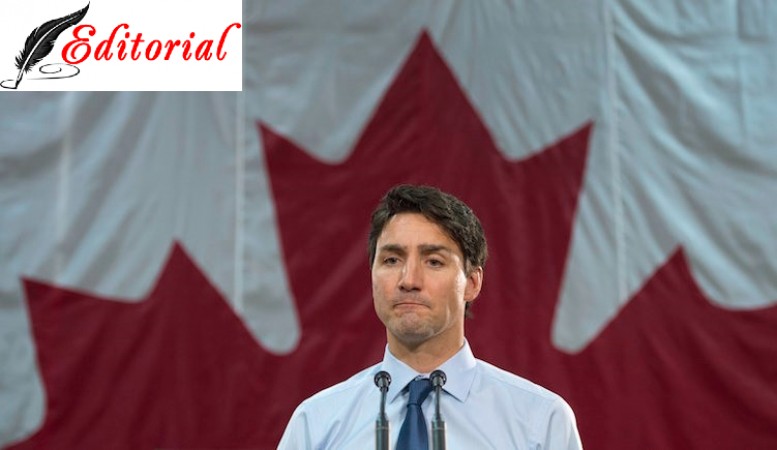
The astonishing accusation made by Canada's Prime Minister, Justin Trudeau, connecting the assassination of Khalistani leader Hardeep Singh Nijjar in June to "individuals associated with the Government of India," represents a deeply troubling low point in the deteriorating relations between the two nations. Trudeau's claim, backed by assertions of shared evidence with India and a recent face-to-face meeting with Prime Minister Narendra Modi, has set off a chain reaction of consequential events. In response to Canada's expulsion of a high-ranking Indian diplomat, India summoned the Canadian High Commissioner and reciprocated by expelling Canada's Station Chief for intelligence operations on Tuesday. Concerns over the escalating dispute have also been voiced by the United States and Australia, both of whom are allies of Canada in the "Five Eyes" intelligence-sharing coalition. Meanwhile, the Indian External Affairs Ministry has accused Canadian diplomats of participating in "anti-India" activities, hinting at the possibility of further diplomatic scrutiny. In turn, the Canadian government has expressed concerns about potential violations of international rule of law and Canadian "sovereignty." These issues carry the potential to ignite additional areas of conflict. Notably, Trudeau has garnered support for his position from political adversaries in Parliament, including figures such as Pierre Poilievre and Jagmeet Singh, suggesting that the chill in relations may persist even if his government is replaced in the 2025 elections. It is worth highlighting that, unlike Pakistan, where such allegations, name-calling, and public confrontations have become commonplace, Canada is a member of the Western NATO alliance and is home to a substantial Indian and Indian-origin Canadian population. Consequently, the repercussions of this rupture will reverberate on a broader scale.
In the midst of this tense juncture, the initial course of action should involve careful contemplation of the upcoming steps. For Trudeau, the utmost priority should be to either publicly substantiate his grave allegations or acknowledge his inability to do so. India's claims regarding Canada serving as a safe haven for anti-India, separatist Khalistani groups have been validated by numerous incidents spanning from the early 1980s to recent instances of targeting Indian diplomats and Indian community centers. The fact that Hardeep Singh Nijjar, the leader of the "Khalistan Tiger Force" and a wanted individual in India for alleged involvement in terror activities in Punjab during the 1990s, held Canadian citizenship is a compelling indictment in itself. New Delhi must also carefully weigh the path it wishes to take in its relationship with Canada. The Indian government had previously celebrated Prime Minister Narendra Modi's visit to Canada in 2015 as a significant milestone, marking the first bilateral visit by an Indian Prime Minister since 1973. There was optimism that decades of distrust surrounding the Khalistan issue could be set aside. Earlier this year, both India and Canada had endeavored to reset their relations, with visits by Canadian Foreign Minister Melanie Joly and the swift commencement of free trade negotiations. However, following the contentious meeting between Trudeau and Modi on the sidelines of the G-20 summit and Trudeau's recent allegations, diplomatic pleasantries have unquestionably eroded, leading to a temporary halt in FTA negotiations.